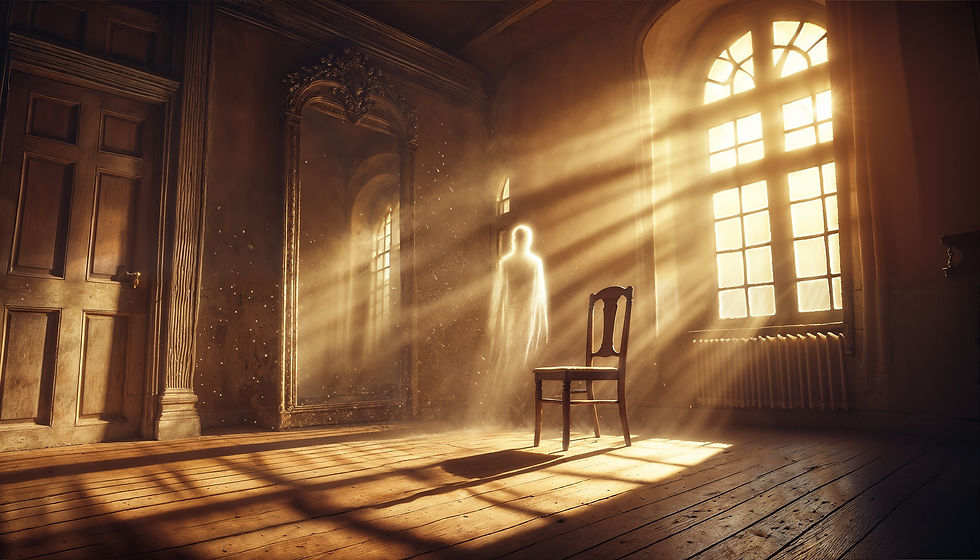When the Dead Whisper at Noon
- RS

- Jun 27
- 2 min read
We were taught to fear the midnight hour. To light candles at dusk. To draw salt at thresholds.
But not all spirits haunt the dark. Some whisper in daylight—when the veil thins in places no one thinks to look.
Noon. Where shadow stands shortest and the sun rules supreme.
And that’s exactly when they come.

Why Would the Dead Choose Noon?
Because not all spirits are made of moonlight. Some died in sun. Some were denied mourning. Some are trapped in cycles that never slept.
The dead who whisper at noon are not always angry. They’re exposed. Burnt raw by the light, caught between decay and memory. Their messages arrive like migraines, like static, like the too warm feeling in an empty room.
But what if it’s not a haunting? What if it’s remembrance?
Daylight necromancy isn’t done with bones and ash. It’s done with mirrors. With shadows that shouldn't exist. With whispers behind glass.
Signs a Spirit is Speaking by Sun
An object you’ve touched a thousand times feels suddenly wrong
You hear your name when no one’s nearby
A reflection lags in the mirror
Light bends slightly where it shouldn’t
You feel both watched and remembered
The midday dead fear silence more than dark. Because in silence, their names fade. And names… Names are how spirits stay tethered.
Have you ever walked into a sunlit room and felt someone waiting—without breath, but not without presence?
What Do They Want?
To be spoken to. To be acknowledged. To finish the sentence no one let them complete.
Some only need to be heard once. Others… want something back.
A ring. A name. A lock of hair. A secret they passed down without knowing.
Their haunting is not to frighten—it’s to transfer. Burden. Truth. Curse. Blessing. Memory.
Have you inherited something you never understood? Have you ever felt grief not entirely your own?
The Ethics of Daylight Necromancy
You don’t summon at noon without consequence. Because some things come easier in the sun. And what comes easy… may not leave easy.
To engage is to risk becoming a mirror for the unsaid. To channel is to anchor.
If you hear them—respond carefully.
If you see them—don’t assume they want release.
If they enter your dreams through the mouth of noon, ask yourself: Who is remembering me through them?
And who might I become if I answer?
Protective Practices
Carry obsidian or jet on sunlit rituals
Write the names of known ancestors in red ink and fold them inside a black cloth
Clean mirrors with saltwater on the solstice
Burn mugwort and black spruce before sleeping in haunted daylight spaces
Speak their name only once—never more
These rites are not decoration. They are boundaries. They say: I will listen—but I am not a doorway.

Explore Further:


Comments